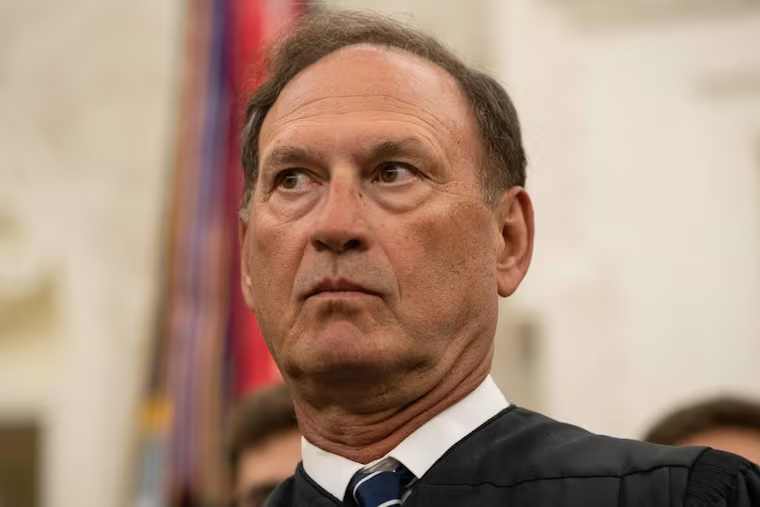U.S. Supreme Court moves up deadline in congressman’s bid to upend Pa. election results
Justice Samuel Alito ordered officials to respond to an appeal from U.S. Rep. Mike Kelly (R., Pa.) by Tuesday, the same day that states are required to lock in delegates for the Electoral College.

The U.S. Supreme Court moved up a key deadline Sunday for Pennsylvania officials to respond to a last-minute bid by one of President Donald Trump’s top boosters in Congress to decertify the state’s elections results.
Previously, Associate Justice Samuel A. Alito Jr., who oversees emergency matters arising out of Pennsylvania for the court, had given state election administrators until Wednesday to file their response to the appeal from U.S. Rep. Mike Kelly (R., Butler), who has argued that Pennsylvania’s vote-by-mail law is unconstitutional and that every mail ballot cast in the state should be thrown out.
But on Sunday, Alito moved up the schedule in Kelly’s case by a day, ordering state officials to respond by 9 a.m. Tuesday, instead.
The difference of just a day is significant, given that the previous deadline of Wednesday fell one day after what is known as the “safe harbor date,” the federal cutoff date for states to resolve any remaining election disputes and lock in their slate of electors for the Dec. 14 Electoral College vote.
Many legal observers read Alito’s initial selection of Dec. 9 as a sign that the court had no intention of acting on the Kelly’s case in a way that would interfere with Pennsylvania awarding its 20 electoral votes to President-elect Joe Biden.
The new deadline falls on the same day as the “safe harbor date” and now would give the court a few hours Tuesday to act on Kelly’s request if it chooses to do so — though Alito did not offer any explanation Sunday for the change in schedule.
Still, experts said it remains unlikely that the wider Supreme Court will be persuaded to take up Kelly’s appeal, given that the remedy it seeks — disenfranchising millions of Pennsylvania voters — is so drastic.
“I would not read too much into this,” said Richard L. Hasen, an election law professor at the University of California-Irvine, in a post on his blog Sunday. “It shows more respect to the petitioners [Kelly], and does not make it look like the court is simply running out the clock on the petition. I still think the chances the court grants any relief on this particular petition are virtually zero.”
Kelly has argued that Pennsylvania lawmakers improperly expanded voting by mail in the state last year with a vote in the state legislature instead of submitting the change through the constitutional amendment process, which would have required a statewide ballot question, among other procedural steps.
But in throwing out his case Nov. 28, Pennsylvania’s Supreme Court said Kelly had waited far too long to file his legal challenge and noted it had only come after his favored candidate, Trump, had lost the election.
The court also balked at his request to disqualify every ballot cast by mail, with one justice calling it “a transparent and untimely effort to subvert the will of Pennsylvania voters” in a state Biden won by about 81,000 votes.